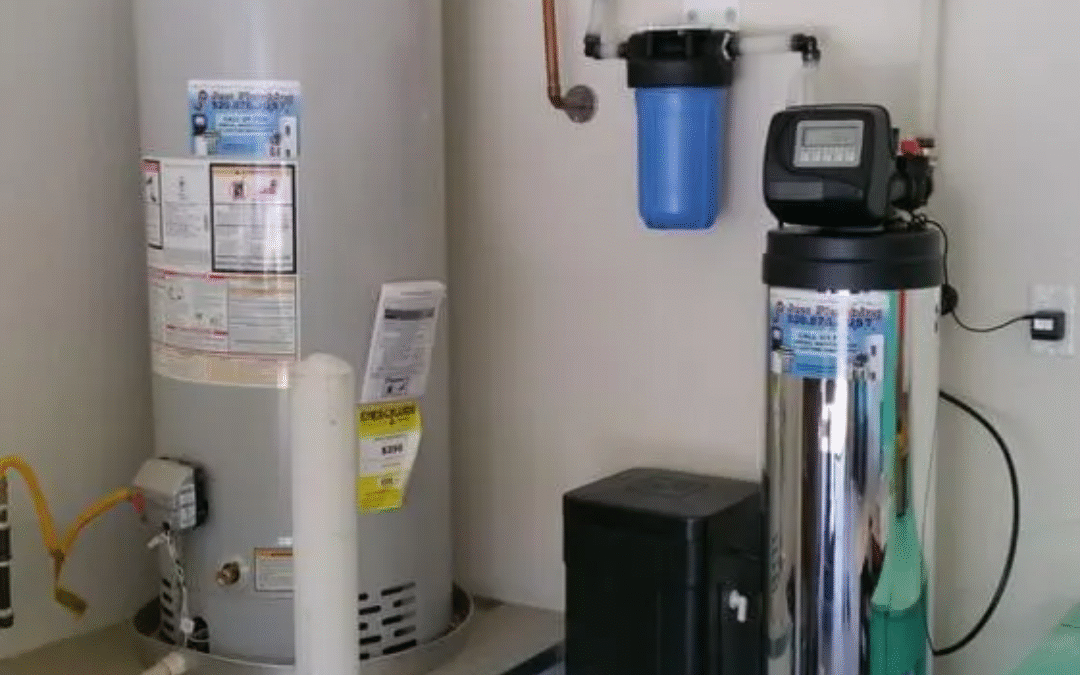Your water heater is one of the hardest-working appliances in your home. From morning showers to nightly dishwashing, it runs daily to keep your family comfortable. But did you know the quality of your water plays a huge role in how well your water heater works—and how long it lasts?
In Northern Kentucky and Greater Cincinnati, many homes deal with hard water, sediment, and other water quality issues that can quietly shorten a water heater’s lifespan. Here’s how your tap water may be affecting your system, and what you can do about it.
Table of Contents
Hard Water: The Enemy of Efficiency
Hard water contains high levels of calcium and magnesium. When heated, these minerals separate from the water and form scale, which settles inside your tank or clings to heating elements.
How it impacts your water heater:
- Reduces efficiency, forcing your heater to work harder.
- Shortens the lifespan of electric heating elements and gas burners.
- Causes rumbling or popping noises as water bubbles through hardened scale.
Without treatment, hard water can reduce a standard water heater’s life expectancy from 10–12 years down to as little as 6–8 years.
Sediment Buildup: Hidden Trouble at the Bottom
In addition to minerals, tap water often carries fine sediment from natural sources or aging pipes. Over time, this sediment settles at the bottom of your water heater.
Signs of sediment buildup:
- Longer heat times or inconsistent water temperatures.
- Reduced hot water capacity (running out of hot water faster).
- Murky or discolored hot water.
Sediment not only takes up space inside your tank but also creates a barrier between the burner and the water, making the system less efficient.
Corrosive Elements: Rust and Contaminants
Poor water quality can also lead to corrosion inside your water heater. While the anode rod is designed to attract corrosive elements and protect the tank, it eventually wears out. Without proper maintenance, rust can form inside the tank, leading to leaks.
In older homes with lead service lines or outdated plumbing, contaminants can also accelerate wear on your system’s components.
How Water Quality Shortens Lifespan
Between mineral scale, sediment buildup, and corrosive contaminants, poor water quality can:
- Increase your energy bills.
- Force your system to run longer and harder.
- Lead to leaks, breakdowns, or premature replacement.
In short, water quality doesn’t just affect taste or comfort—it directly determines how long your water heater will last.
How to Protect Your Water Heater
You can’t control the quality of water entering your home from the Ohio River or local aquifers, but you can protect your plumbing and water heater with a few smart steps:
- Install a water softener or conditioner to reduce scale-forming minerals.
- Flush your water heater annually to clear sediment buildup.
- Replace the anode rod as needed to prevent corrosion.
- Schedule routine inspections to catch problems before they turn into leaks.
Trust A+ Services for Water Heater and Water Quality Solutions
At A+ Services, we understand the connection between water quality and plumbing performance. That’s why we offer water heater repair, installation, and maintenance—along with water softeners, conditioners, and treatment systems to protect your home.
Serving homeowners across Covington, Florence, Independence, and Greater Cincinnati, we provide honest advice, upfront pricing, and solutions that extend the life of your water heater while improving your water quality.
Your water heater’s performance and lifespan aren’t just about the brand or model—they’re about the quality of the water running through it every day. By addressing hard water, sediment, and contaminants now, you can save money, extend your system’s life, and enjoy reliable hot water all year long.
Ready to protect your water heater and improve your water quality? Schedule your consultation today with A+ Services.

